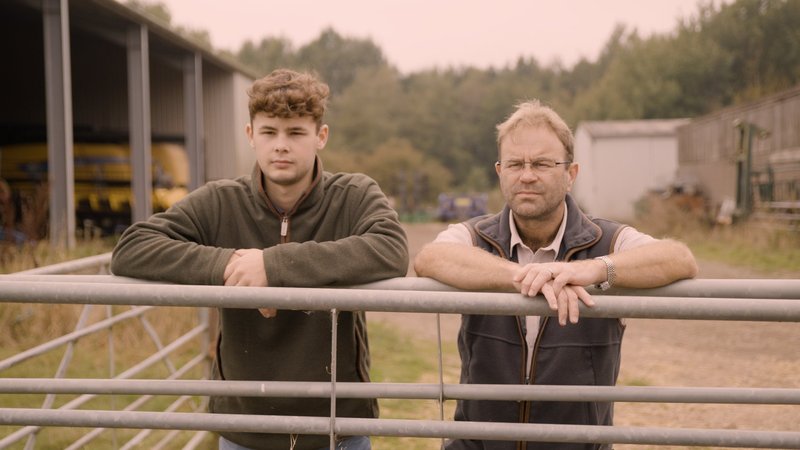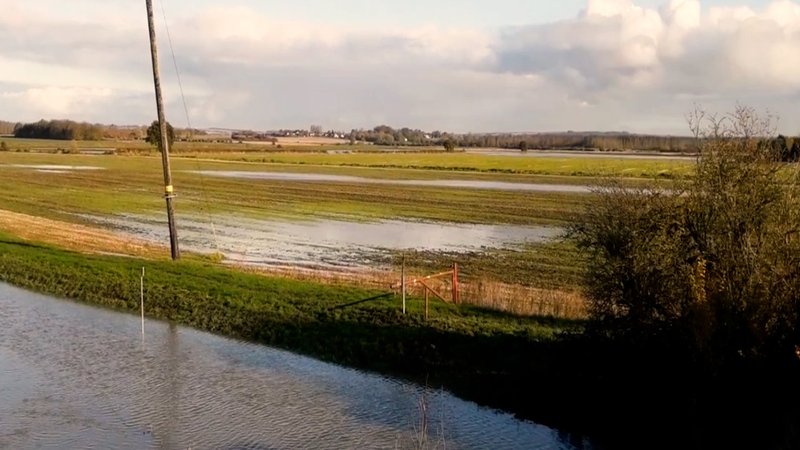A UK farmer calls for loss and damage funds to weather climate crisis, with severe floods waterlogging his crops and seeding doubts about future of British food

“We are very, very lucky in the UK that we have a commodity like food, and it is on the shelves all the time. By 2050, what will be on the shelves?”
Farmers are at the forefront of climate change, and we all rely on the food they produce.
Colin Chappell is a fourth-generation farmer in North Lincolnshire, England, and member of the Nature Friendly Farming Network. In the future, he wants to hand the farm over to his children.
Wheat is the biggest crop in the UK. But heatwaves, flooding and unusually cold weather are already hitting the UK and making farming more difficult.
“We have broken nearly every single weather record, climate record, I think this farm can break,” Colin says. “The mother of all floods was this year.”
He adds: “My land was stood in water from October 2023 until virtually April 2024. I was farming water. I wasn't farming soil.”
This flood foreshadows his son Jack’s fears about the future: “I'm hoping to have a farm. [But] I remember my science lessons – it's supposed to be underwater by 2050. I'm not going to have anything to farm.
Despite these challenges, Colin farms with a passion. But this year he lost about half of his wheat crop, costing him around £100,000 for the wheat alone.
Estimates suggest that farmers will lose £600 million in revenue this year compared to 2023, according to data covering five crop types.
“I take pride in farming human food, from porridge oats to bread, mushy peas for fish and chip[s].
“[But] the flooding has decimated this business.”
I was farming water. I wasn't farming soil

This year England experienced its second worst harvest since 1983 due to record-breaking wet weather last winter.
The wheat harvest in England is predicted to be 21% less this year compared to 2023.
Analysis by World Weather Attribution found that climate change made higher than average rainfall last winter four times more likely and storm rainfall 20% heavier.
The stress that climate change has placed on Colin is also impacting his health.
If I get another bad year, that's it. We're gone
“We're trying to make my farm more resilient. But there was a point around about January, February of this year, 2024 when I felt I wanted to give up.
“I basically ended up in hospital. I had a suspected heart attack from the pressure that was on my shoulders. I still don't think I'm going to make a financial return on this year.
“I'm now eating into the reserves I had, and my reserves, if I get another bad year, that's it. We're gone.”
Colin kept going because he wants to hand over the farm to his children. As a farmer, he feels a moral responsibility to keep producing food and has contracts to honour.
And he believes that change is possible.
Colin would like people to place more value on food, for everyone to take action on climate change and a successful loss and damage fund: “I'd love to see that it be set up in such a way where it doesn't make us have to pay for what we are being impacted by.
“In agriculture, there is always a polluter pays principle. The polluter should have to fund for the damage they've caused.”
*Quotes have been slightly edited for clarity and brevity, while not changing the meaning.

